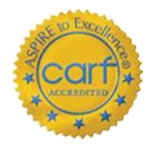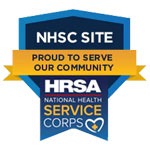The Importance of Research at Henderson Behavioral Health
Research paves the way for prevention, recovery and cure and HBH is committed to contributing to that knowledge base. HBH participates in cutting-edge research on evidence based practices, emerging best practices and recovery-promoting services for individuals with severe mental illness. Systematic pursuit and dissemination of such knowledge, has been a cornerstone of HBH’s long history.
CATIE (Clinical Antipsychotic Trials of Intervention Effectiveness)
Hypothesis/Objective: This NIMH funded study compared the efficacy and tolerability of atypical and typical antipsychotic medications in the treatment of schizophrenia.
Completion Date: Dec. 2004
# of Sites: 57
Results/Findings: In Phase 1 of the study, 74% of the subjects discontinued their study medication before 18 months. Olanzepine was found to be more effective than other antipsychotic medications but associated with significant weight gain. In Phase 2, the participants who discontinued their medication in Phase 1 were assigned to either the efficacy pathway or tolerability pathway depending on the reason they discontinued their medication. The efficacy pathway showed that Clozapine was remarkably effective and substantially better than the other studied atypical antipsychotic medications. In the tolerability pathway, those taking Olanzapine or Risperidone in phase 2 stayed on their medication for a significantly longer duration than those taking Quetiapine or Ziprasidone. However, for the participants who had stopped phase 1 medication due to side effects, there were no significant differences among the four phase 2 medications.
MHTS (Mental Health Treatment Study)
Hypothesis/Objective: The premise of the study was that access to supported employment and systematic medication management along with the removal of disincentives, will enable SS Disability beneficiaries with Schizophrenia and Affective disorders to return to work.
Completion Date: July 2010
# of Sites: 23
Results/Findings: Those subjects receiving the above treatment had greater success in finding and staying employed and showed improvement in their mental health as well as their quality of life.
The Risks and Benefits of switching patients with Schizophrenia or Schizoaffective Disorder from two to one Antipsychotic Medication: A Randomized Controlled Trial
Hypothesis/Objective: This was an open label study in which stable patients with Schizophrenia and Schizoaffective Disorder currently treated with 2 antipsychotic medications were assigned to remain on these medications or were switched to anytipsychotic monotherapy using one of these 2 antipsychotic medications.
Completion Date: Nov. 2013
# of Sites: 7
Results/Findings: Participants who switched to antipsychotic monotherapy experienced greater increases in symptoms than stay patients.
Utilizing Health Information Technology to Improve Health Care Quality: Implementation of a CCBT (Computerized Cognitive Behavioral Therapy) Protocol for Childhood Anxiety
Hypothesis/Objective: The hypothesis of this study was that children ages 7-13 who were diagnosed with an anxiety disorder and received CCBT would have lower anxiety levels than those receiving treatment as usual.
Completion Date: Sept. 2014
# of Sites: 4
Results/Findings: Thirty of 49 (61.2%) children randomized to computer-assisted CBT responded to treatment, which was superior to treatment as usual (6/51, 11.8%). Relative to TAU, computer-assisted CBT was associated with greater reductions in parent-rated child impairment and internalizing symptoms, but not child-rated impairment and anxiety and depressive symptoms. Treatment satisfaction and therapeutic alliance in those receiving computer-assisted CBT was high. Treatment gains in computer-assisted CBT responders were maintained at 1month follow-up.
RAISE ETP (Recovery After Initial Schizophrenia Episode-Early Treatment Program)
Hypothesis/Objective: This study’s hypothesis was that the use of Navigate, a coordinated specialty care program, will be more effective in changing the outcome and prognosis of those subjects with first episode of psychosis when compared to those given treatment as usual.
Completion Date: May 2017
# of Sites: 34
Results/Findings: RAISE-ETP findings show that over two years, clients at the NAVIGATE clinics stayed in treatment longer; experienced greater improvement in their symptoms, interpersonal relationships, and quality of life; and were more involved in work or school compared to clients at the typical-care sites. NAVIGATE clients who had a shorter duration of untreated psychosis (DUP) when they started the study showed even greater improvements than those with longer DUP. The study showed that coordinated specialty care for first episode psychosis can be used in a variety of U.S. community mental health clinics
ICRC (Improving Care and Reducing Cost)
Hypothesis/Objective: The study was aimed at helping chronically hospitalized psychotic patients reduce their hospitalization and emergency room visit rates through the use of technology on smart phones and computers. It provided case management, online support groups, illness education for patients and their families, CBT programs for voices and paranoia and a computerized physician decision assistant.
Completion Date: June 2015
# of Sites: 10
Results/Findings- N/A
Digital Trajectories to Care in First Episode Psychosis
Hypothesis/Objective:The internet and social media may be critical resources for expediting help-seeking and facilitating treatment initiation for those with an untreated psychosis. The hypothesis of this study was that the majority of youth with psychosis would report social media and internet utilization throughout the duration of untreated psychosis.
Completion Date: Mar. 2016
# of Sites:9
Results/Findings: The majority of participants used social media an average of 2 hours a day and their social media usage pre-dated their diagnosis by approximately 5 years. The internet was the most used resource for information gathering while symptoms were emerging. Participants with First Episode Psychosis waited 36.6 weeks before disclosing their symptoms. 79% of participants said they would like to receive mental health help via the internet and social media.
Prelapse- A Cluster Randomzied, Multi-Center, Parallel-group, Rater-blind Study Comparing Treatment with Aripiprazole Once Monthly and Treatment as Usual on Effectiveness in First Episode and Early Phase Illness in Schizophrenia
Hypothesis/Objective: This study compares the outcomes of first episode and early phase schizophrenia patients treated with an LAI (monthly Aripiprazole) vs. treatment as usual
Targeted Completion Date: Dec. 2018
# of Sites: 40
Results/Findings: Currently ongoing
FIRST- A 12-Month Randomized, Open-Labe Study of Caregiver Psycho-education and Skills Training in Patients Recently Diagnosed with Schizophrenia, Schizoaffective Disorder, or Schizophreniform Disorder and Receiving Paliperidone Palmitate or Oral Antipsychotic Treatment
Hypothesis/Objective: The purpose of the study is to evaluate whether psycho-education and skills training provided over a 6 month time period will benefit a patient’s caregiver, which could then benefit the patient over the 12 month study period, versus routine treatment alone.
Targeted Completion Date: July 2018
# of Sites: 30
Results/Findings: Currently ongoing






